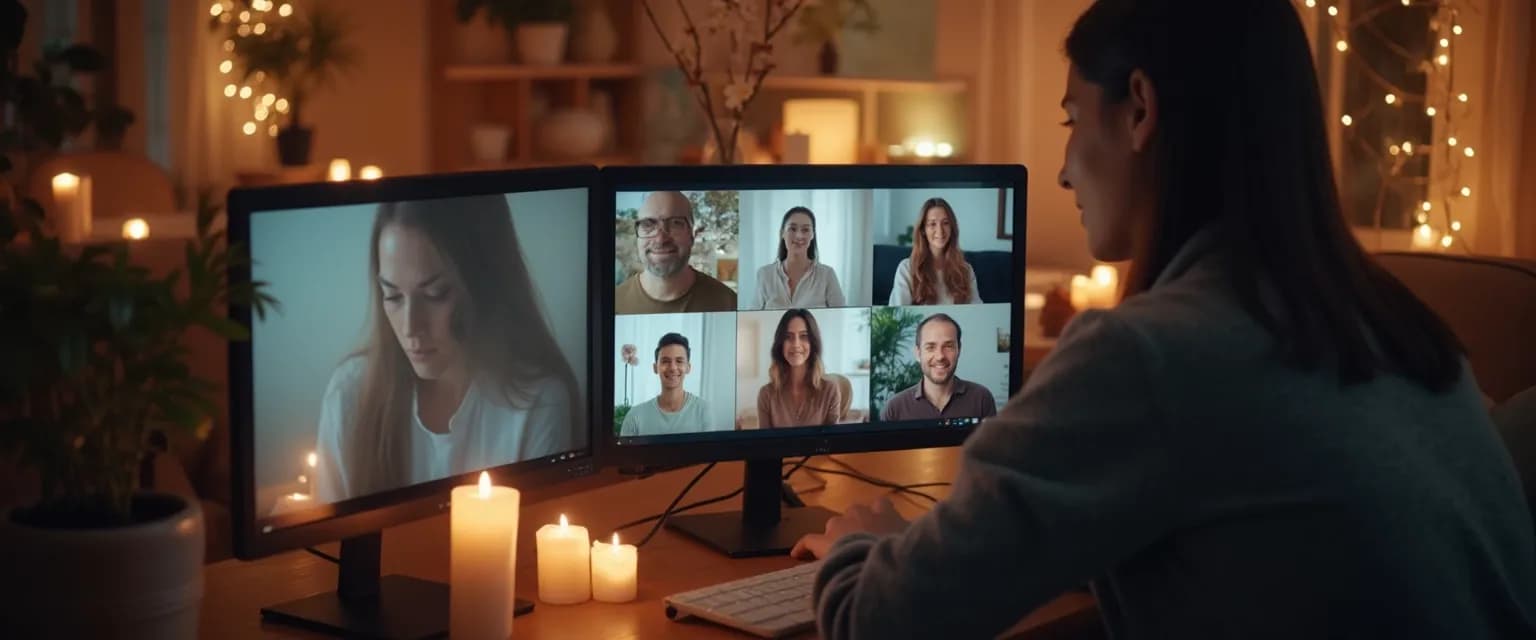5 Essential Questions to Ask Before Joining Online Grief Groups
Navigating grief is already challenging enough—finding the right support shouldn't add to your burden. Online grief groups have become increasingly accessible options for those seeking connection during difficult times. But how do you know if a virtual grief community is right for you? Asking the right questions before joining grief groups can make all the difference in your healing journey. These five essential questions will help ensure the grief support you choose truly meets your needs and provides the compassionate space you deserve.
The beauty of online grief groups lies in their ability to connect people across distances, but not all groups are created equal. Taking time to evaluate different grief groups before committing can save you emotional energy and help you find a truly supportive community. Whether you're looking for healing after loss or seeking ongoing support, these questions will guide you toward making an informed decision.
Let's explore the five crucial questions to ask before joining an online grief group that will help you find the right fit for your personal healing journey.
Understanding Facilitation Styles in Grief Groups
The facilitation approach significantly impacts your experience in grief groups. Some groups are led by licensed mental health professionals with specialized grief training, while others are peer-led by individuals who have experienced similar losses. Neither style is inherently better—what matters is which approach resonates with you.
Questions to consider: Who leads the sessions? What are their qualifications or personal experience with grief? How do they handle difficult emotions or conflicts that arise? Professional grief groups may offer more structured guidance, while peer-led groups often provide authentic connection through shared experience.
Pay attention to how the facilitator describes their role. Do they see themselves as an expert guiding the process or as a fellow traveler creating space for everyone's experience? Understanding this dynamic helps you determine if their approach aligns with your emotional needs and preferred learning style.
Evaluating Size and Structure of Online Grief Groups
Group size significantly impacts intimacy and participation opportunities in grief groups. Smaller groups (typically 5-12 members) often allow for deeper sharing and connection, while larger groups might offer more diverse perspectives but less individual speaking time.
Questions to ask: How many people typically attend? Is the group open (allowing new members anytime) or closed (same participants throughout)? How frequently does the group meet, and for how long? Understanding the time commitment helps you determine if the structure fits your schedule and emotional capacity.
Also consider whether the grief group follows a specific curriculum or flows more organically based on participants' needs each session. Some people prefer structured learning while others benefit from more spontaneous sharing. The right format provides a comfortable balance between guidance and flexibility.
Assessing Privacy Policies in Virtual Grief Groups
Privacy is paramount when sharing vulnerable emotions in grief groups. Before joining, understand exactly how your personal information and contributions will be protected.
Key questions: Are sessions recorded? If so, who has access to recordings and for how long? What platform is used, and what are its security features? What are the group's confidentiality expectations for members? Look for grief groups with clear privacy policies that members actively agree to follow.
Red flags include vague answers about recording practices, no formal confidentiality agreements, or using platforms with known security issues. Grief support requires vulnerability, which is only possible in an environment where you feel your personal boundaries are respected and protected.
Finding Grief Groups That Align With Your Personal Journey
Perhaps the most important consideration is whether a grief group's focus and approach align with your specific loss experience and values. General grief groups welcome all types of losses, while specialized groups focus on specific experiences like losing a spouse, child, parent, or losses through particular circumstances.
Questions to consider: Does the group focus on specific types of loss or grief experiences? What philosophy or approach to grief does the group follow? How does the group define "healing" or "progress" in grief?
Many grief groups now offer free introductory sessions, allowing you to experience the dynamic before committing. This gives you valuable insight into whether the group's approach resonates with your personal grief journey.
Finding the right grief groups takes thoughtful consideration, but asking these five questions helps ensure you find a supportive community that truly meets your needs. Remember that what works for others might not work for you—your grief journey is unique. The best grief groups provide a balance of compassionate listening, gentle guidance, and practical support while respecting your individual process.
Taking time to evaluate different grief groups isn't being picky—it's practicing essential self-care during a vulnerable time. With these questions in hand, you're well-equipped to find an online grief community that provides the exact support you need on your healing journey.




